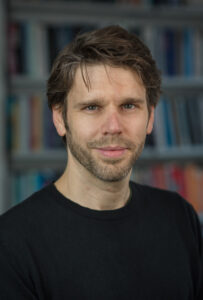Sami Aoun
Sami Aoun is Professor Emeritus at the University of Sherbrooke. He is also Director of the Observatory on the Middle East and North Africa (OMAN), affiliated with UQÀM’s Raoul-Dandurand Chair in Strategic and Diplomatic Studies and Co-Founder of the Observatory on Radicalization and Violent Extremism (OSR). His major interests are applied politics, and challenges and conflicts in the Middle East, ethics and international decision-making, democracies, democracies and the legitimacy of political systems, religion and modernity, as well as interreligious and intercultural dialogue.
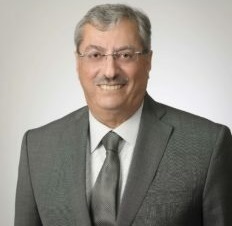
Adib Bencherif
Adib Bencherif is an adjunct professor at the School of Applied Politics at the University of Sherbrooke. He teaches courses in applied political science and courses on Africa and the Middle East. He is also a research associate at the Sahel Research Group of the Center for African Studies at the University of Florida, at the UNESCO-PREV Chair and at the Francopaix Center of the Raoul-Dandurand Chair at UQÀM. He obtained his PhD at the School of Political Studies of the University of Ottawa and completed his postdoctoral fellowship at the Sahel Research Group of the University of Florida (2019-2021). Her main research interests focus on security issues, identity issues, and political violence in North Africa and the Sahel. His research focuses on nomadic communities, specifically the Tuareg. An advocate of an applied social science approach, he provides training in political risk analysis and regularly participates in consulting activities to facilitate conflict analysis and resolution and the prevention of radicalization. He has published numerous scientific articles in French and English and co-edited a book on political risk analysis (PUM).
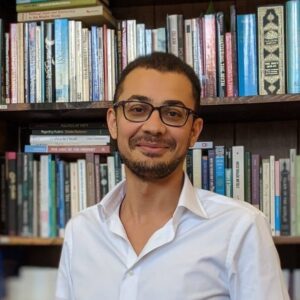
Olivier Champagne-Poirier
Olivier Champagne-Poirier is an assistant professor in the Department of Communication at the University of Sherbrooke. He co-founded the International Crisis & Risk Communication Association and serves on its board of directors. He is a member of the Laboratoire interdisciplinaire sur les risques et les crises (LIRiC) and the Laboratoire de recherche sur les publics de la culture (LRPC). He also serves on the scientific committees of the journal Climatoscope and the Jasmin Roy Sophie Desmarais Foundation. He specializes in qualitative research methods and is interested in various transdisciplinary issues, ranging from the socio-media impacts of crises (health, industrial, or environmental) to barriers to cultural democratization. His work has been published in collective works and national and international scholarly journals, such as the International Journal of Qualitative Method, Les Cahiers du Journalisme, Infodemic Disorder, Communicating Risk and Safety, Qualitative Health Research, and the International Journal of Environmental Research and Public Health.

Emmanuel Choquette
Emmanuel Choquette is a professor of communication in the Department of Communication at the Université de Sherbrooke. He is also a professor-researcher with the “Groupe de recherche en communication politique” (GRCP), a co-investigator with the “Centre pour l’étude de la citoyenneté démocratique” (CÉCD) and a member of the “Observatoire de l’humour” (OH). His work focuses on political communication, discursive strategies, social cohesion issues and humour studies. He has conducted post-doctoral research at the UNESCO-Prev Chair and the Centre for Research on Social Innovations and Transformations (CRITS) aimed at developing effective communication strategies to combat hate speech. He is also interested in the representation and “negative stereotyping” of cultural and religious minorities in the public space, particularly through humorous discourse.
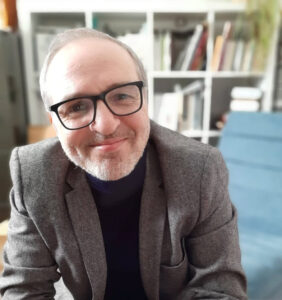
Thi Huong Dang
Thi Huong Dang is an assistant professor in the Department of Literature and Social Communication at the University of Quebec at Trois-Rivières. She is a researcher at the Political Communication Research Group (GRCP) and the Public Communication and Artificial Intelligence Research Laboratory at Laval University. Her research focuses on disinformation, propaganda, media and information literacy, the legal framework in the digital age, and the uses of artificial intelligence in the fields of communication and journalism. She is also interested in Vietnam’s disengagement from China in the context of economic and political cooperation.

Sylvain Delouvée
Sylvain Delouvée is a senior lecturer in social psychology at Rennes 2 University (France). He is co-director of the “Violence, Risks, Vulnerability” course (psycho-criminological and victimological approaches) in the Master’s degree in Clinical Psychology, Psychopathology and Health Psychology. His research focuses on the interaction between social and psychological factors that influence social thinking, beliefs and behavior when individuals or groups encounter situations that may be perceived as uncertain, risky or extreme. In more applied terms, it focuses on the processes of social and cognitive adaptation to environmental risks (e.g. climate change), health or biological risks (emerging infectious diseases, antibiotic resistance, vaccine hesitancy), societal risks (terrorism and radicalization) and the uncertainties associated with these situations.
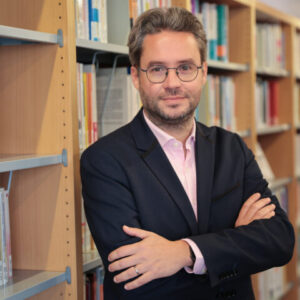
Pablo Madriaza
Pablo Madriaza is professor of social work at the Université du Québec en Outaouais in Canada. He holds a degree in psychology and a master’s degree in anthropology, both obtained in Chile, as well as a master’s degree and a doctorate in sociology, obtained in France. He has participated in numerous research projects and publications on violence and social conflict, including school violence, delinquency, and social movements. The last period of his career has been devoted to the study of the prevention of violent extremism and hate-motivated acts, particularly from the perspective of intervention practices and program evaluation. He is particularly interested in analyzing such socio-political violence from a critical, decolonial and postcolonial approach.
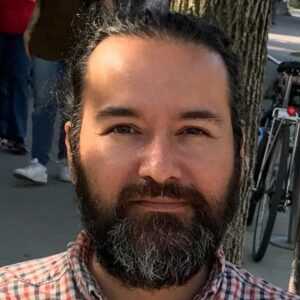
Karine Prémont
Karine Prémont is a full professor at the School of Applied Politics at the University of Sherbrooke and assistant director of the Observatory on the United States at the Raoul-Dandurand Chair at UQÀM. She is also a member of the Interdisciplinary Laboratory on Risks and Crises (LIRIC). Her research focuses primarily on US foreign policy, particularly the role and influence of vice presidents on decision-making dynamics, but also on the impact of presidential scandals on decision-making. She is also interested in Quebec and Canadian media coverage of US politics and its impact on public perceptions of US institutions and democracy.

Simon Thibault
Simon Thibault is Associate Professor in the Department of Political Science at the Université de Montréal. He is a researcher with the Groupe de recherche en communication politique (GRCP) and the Centre d’études et de recherches internationales (CÉRIUM). He is also a member of the International Panel on the Information Environment (IPIE), an organization of hundreds of researchers whose mission is to provide scientific insight for action on threats to the global information environment. His research focuses on issues affecting the practice of journalism and the media in Quebec and Canada. He is also interested in the politicization of the media, as well as online disinformation and manipulation.
